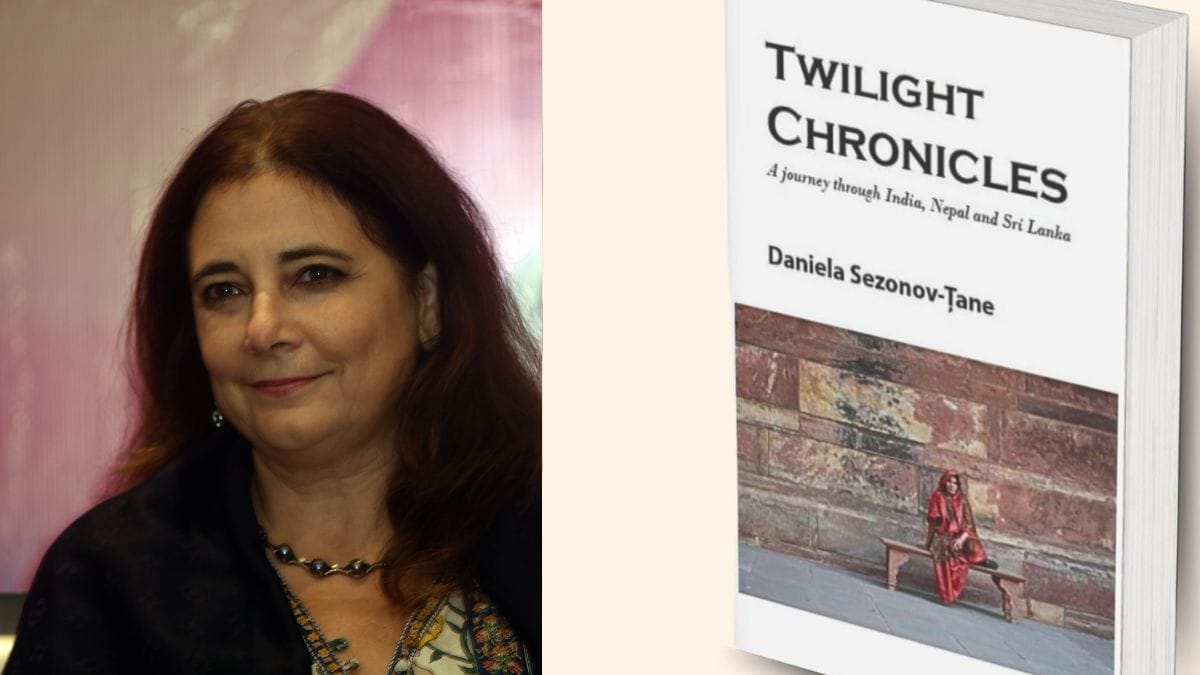From political intrigue to cultural richness, Ambassador Daniela Sezonov-Țane captures the essence of Kolkata her travel memoir, ‘Twilight Chronicles’
read more
In Twilight Chronicles, a book that emerged from her travel diaries, Ambassador Daniela Sezonov-Țane takes readers on a deeply personal and intellectual journey through India, Nepal, Sri Lanka and Cambodia. An exploration of cultures far removed from her Romanian roots, the book reflects her deep admiration and complex understanding of these lands. In this excerpt, we get a glimpse of Kolkata through the Ambassador’s eyes—a city steeped in history, artistic vibrancy, and the legacy of colonialism. But through her nuanced narrative, Kolkata emerges not only as a city of contrasts but also as a mirror to India’s evolving identity.
Extract from Twilight Chronicles by Daniela Sezonov-Tane, Romanian Ambassador to India
I arrived in Kolkata on a pleasant November morning, basking under a gentle sun, as if exhausted after fighting with the monsoon clouds. The patron goddess of the city is Kālī who left a mark on me from the first moment itself. I was expecting to find crowds, chaos (at least this is what I had heard from various sources), cohorts of beggars and poverty. Despite the heaviness of the air which seemed more polluted than Delhi, the greatness of the city immediately conquers the newcomer. Kolkata emanates an old-fashioned ambience, a certain characteristic British “stiffness”, retaining nevertheless an aura of unspoken nobility. Apparently, this former capital city of British occupied India, abandoned by them since 1911, has been waiting ever since to regain its formal glory. Next to 19th century buildings, properly renovated, with their facades painted invariably white and brick, the travellers find buildings dating from the same period and in the same architectural style which are blackened and desolate by the passage of time, eaten up by mould and damp, overtaken by moss and wild vegetation, completely dilapidated and neglected. Their state of decay, the most visible sign of the passage of time, is overpowering and painful at the same time, a manifestation of the end of a lifestyle.
Following the recommendation of an influential Indian friend, I checked into an imposing colonial-style house which had become a guest house for various government officials on mission, much more comfortable and more authentic than most hotels. And cheaper too (considering that the budget of a Romanian diplomat on mission is to say the least modest). Then I anxiously headed towards the National Library. In front of this massive building, surrounded by an immense garden, I felt a regret for not having the chance to spend my school years here: I would have loved to be a student devoting all my time immersed in Sanskrit manuscripts and oriental studies. I had to settle for looking for Dasgupta’s works through the files, in the hope of finding some biography. I was accompanied by Bob, an American friend with whom I shared the long journey and who was simply interested in visiting the city. Dr. Kar, a stocky Bengali guy, friend since decades with generations of diplomats at the Romanian Embassy in New Delhi, met us at the train station to guide us through this labyrinth. I pictured him like a gatekeeper, a kind of Saint Peter, holding the keys to Heaven and selecting the chosen few. Like every self-respecting Bengali, our guide had tons of patience, did not fret or stress. For him, conducting things in a laid-back way was absolutely normal, so we had no choice but to adjust, wisely and silently, to the “universal rhythm”.
Therefore, I decided to arm myself with patience, although I knew that every day counted and that I couldn’t stay longer than 4-5 days having obtained the ambassador’s approval for it. Unfortunately, for me time has – or must have – a different value. This, even though since being in India I kept telling myself that it might be better to understand and, in as much as possible, get closer to the code of conduct of the people with whom I would be spending the following three years; yet again, the attitude vis-a-vis time is one of the most essential elements. Almost any meeting arranged with an Indian presupposes that you should expect delays (justified or not); if you consider that not being punctual is an affront, it will be almost impossible to carry out any sort of activity here, be it diplomatic, business, or cultural.

